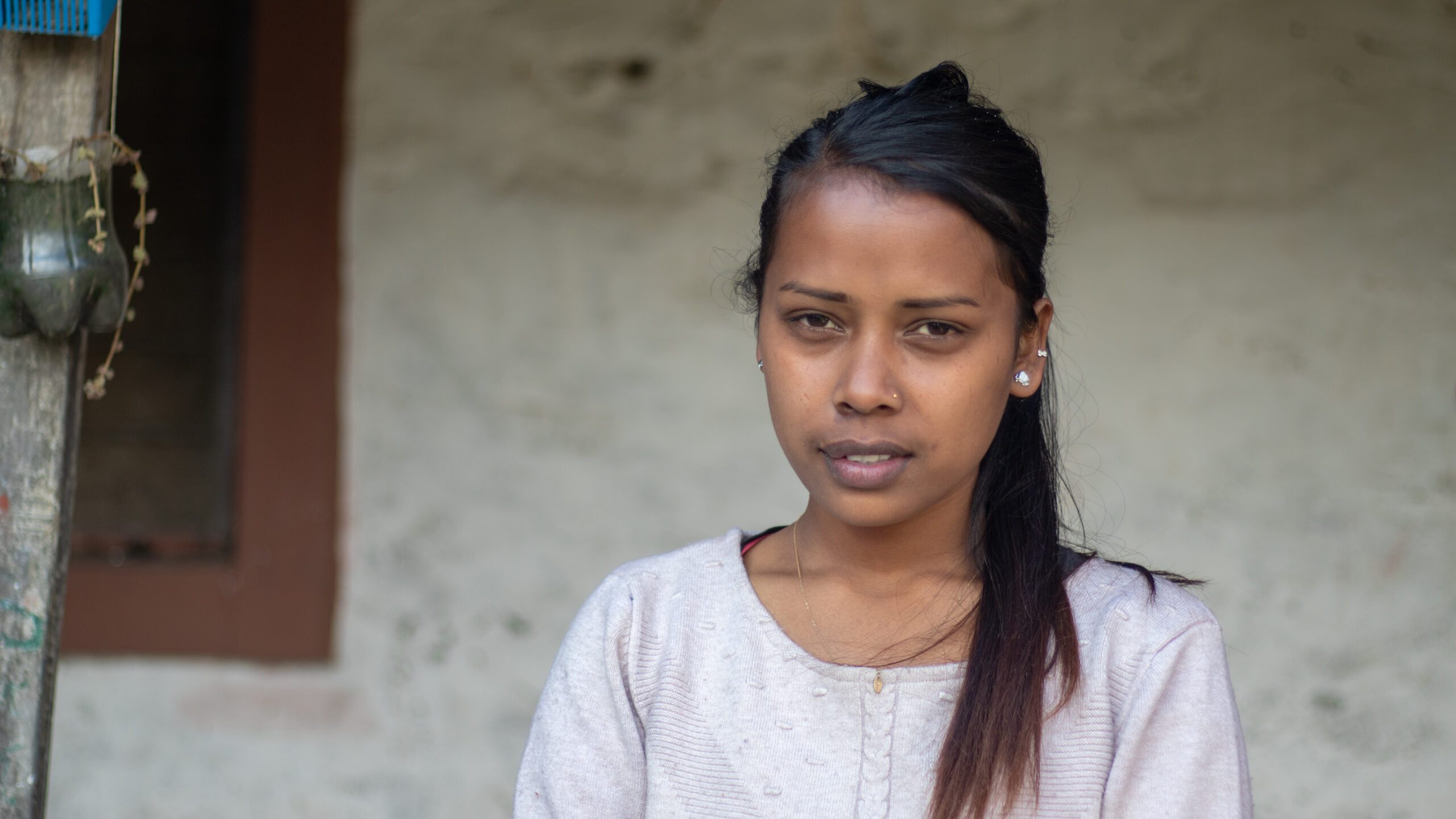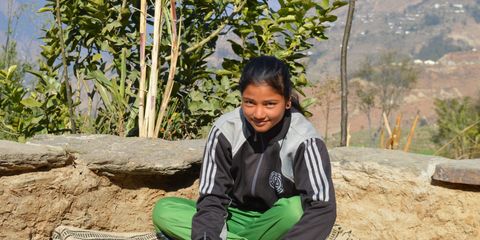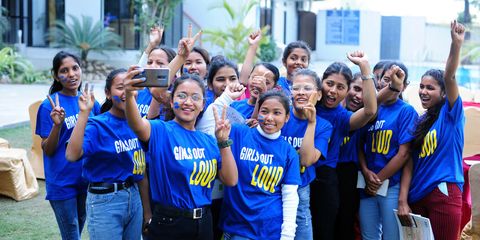New opportunities through skills training for Nepali women
Sushma is among hundreds of young women who have made the most of skills training provided by Plan International Nepal and Right4Children and are now working towards a positive future.

Sushma at home in Pokhara, Nepal.
“I didn’t have a happy childhood. My father was an alcoholic. He used to get drunk and beat my mother. My mother has scars all over her body,” says 22-year-old Sushma who is from a Dalit family. Her father’s poor behaviour meant the family were shunned by the rest of their community and people were often rude to them.
Nepal retains its centuries-old caste system which classifies people into four social hierarchies. Historically, Dalits were considered to be in the lowest caste and part of the so-called “untouchables.” Although Nepal passed a law against caste-based discrimination in 2011, Dalits still face routine segregation and abuse and the ancient biases against lower-caste groups make it harder for them to access education, jobs and homes.
Due to her difficult home life, Sushma struggled to achieve good marks in school so passing her exams was a great achievement. “Among the Dalits in our village, I am the first one to pass the secondary education examination,” says Sushma proudly, explaining that she had to fight for the right to continue her studies.
“When I finished grade 10, my relatives and neighbours came to my home and told my parents to get me married and end my higher education. In my community, girls are married at an early age and they are supposed to look after their family.”
Despite the pressure that her family and community placed on her, Sushma stayed strong and refused to give up her studies. “I did not care about what my family and villagers were saying.”
New opportunities
After passing her exams and finishing school, Sushma decided to move to the city of Pokhara to find work and look for a better opportunity. She knew if she stayed in her rural village in Syangja district she would eventually be forced into an unwanted marriage.
Since childhood, Sushma had dreamt of becoming a police officer but despite spending 3 years applying for various jobs in the police force, she was not selected. Instead, she found work in a hospital as an administrator. When her mother, younger brother and sister also decided to leave their village to escape their father’s violent rages, she had to take on the burden of looking after them.
I enjoy my work. I get happy when they give me more responsibility.
The stress of being responsible for her whole family’s welfare took its toll on Sushma and she struggled to cover their needs, becoming increasingly angry and stressed. Pokhara is one of the most expensive cities in Nepal and Sushma found it difficult for her to make friends or hold down a job for long.
One day Sushma came across an advert for a hotel housekeeping training course run by an organisation called Right4Children who are working in partnership with Plan International. “I did not believe the advertisement. I mean, who provides training without any cost? But I wanted to try my luck and applied for it. On the very same day, I received a selection call,” explains Sushma. “I had to pass an interview which was intensive, but I made it through.”
The skills training course was held at a local vocational training college, but Sushma’s first few days did not go well. “Sushma was one of the most difficult trainees we have ever had. She didn’t get along with the other participants and was rude to her trainers and colleagues,” explains one of her tutors.
Lifeskills training provides positive outcome
Identifying that Sushma’s difficult childhood and current situation may be contributing to her antisocial behaviour, the college enrolled her in counseling sessions and gradually her attitude improved and she started to interact better with others. By the end of the training course, she was excelling.
“I am trying to cope with my stress and anger. The life skills training made it easier as I learnt about anger management,” explains Sushma. The vocational college say that Susham has made them proud with her behaviour change and eagerness to learn new skills.
At the end of the classroom-based training, the students took part in 3 months of practical on-the-job training in a hotel. Following that, Sushma found a role in the housekeeping team at a 4 star hotel in the city which is known as the tourist capital of Nepal.
With her first wage packet, Sushma decided to pay for her father to attend a rehabilitation centre to receive treatment for his alcohol addiction. The treatment is working slowly and he has returned to work.
Everything was going well until the COVID-19 pandemic hit which badly affected Sushma. Before COVID-19, she was earning Rs.10,000 (€82) per month. Then her salary was reduced by half, before she was made unemployed when the hotel owner decided to sell the business.
Out of work for 3 months, she learnt about another vacancy at a hotel through Right4Children and was invited to attend an interview. She was hired straight away as she had the right skills and training.
“It was then I released the value of the training. My dedication and efforts during the training course did not go in vain,” she says. “A few months later I was given the responsibility of being in charge of the housekeeping department. During COVID-19, while people were losing their jobs, I was being promoted.”
Sushma’s family situation is now much better. She makes most of the decisions for her family and they are all very proud of her. “When I visit my village, people praise me for taking big decisions at such a young age. I feel very happy with their comments,” she shares.
“I enjoy my work. I get happy when they give me more responsibility. My team is satisfied with my performance. They are talking about promoting me again to become a supervisor. I am hugely motivated by this,” says Sushma with a big smile.
About the project
Right4Children is implementing the Promoting Young Women in Employment in Pokhara project with funding and technical support from Plan International. The project aims to equip young women with marketable skills and help them to make the most of emerging job opportunities.
Right4Children is implementing the project in close coordination and collaboration with private sector training providers. The project aims to train 800 young women like Sushma in marketable job skills, life skills, basic computer skills, and basic English language so they can find decent paid employment.
Skills and work, Lifeskills training, Livelihoods, Vocational training


